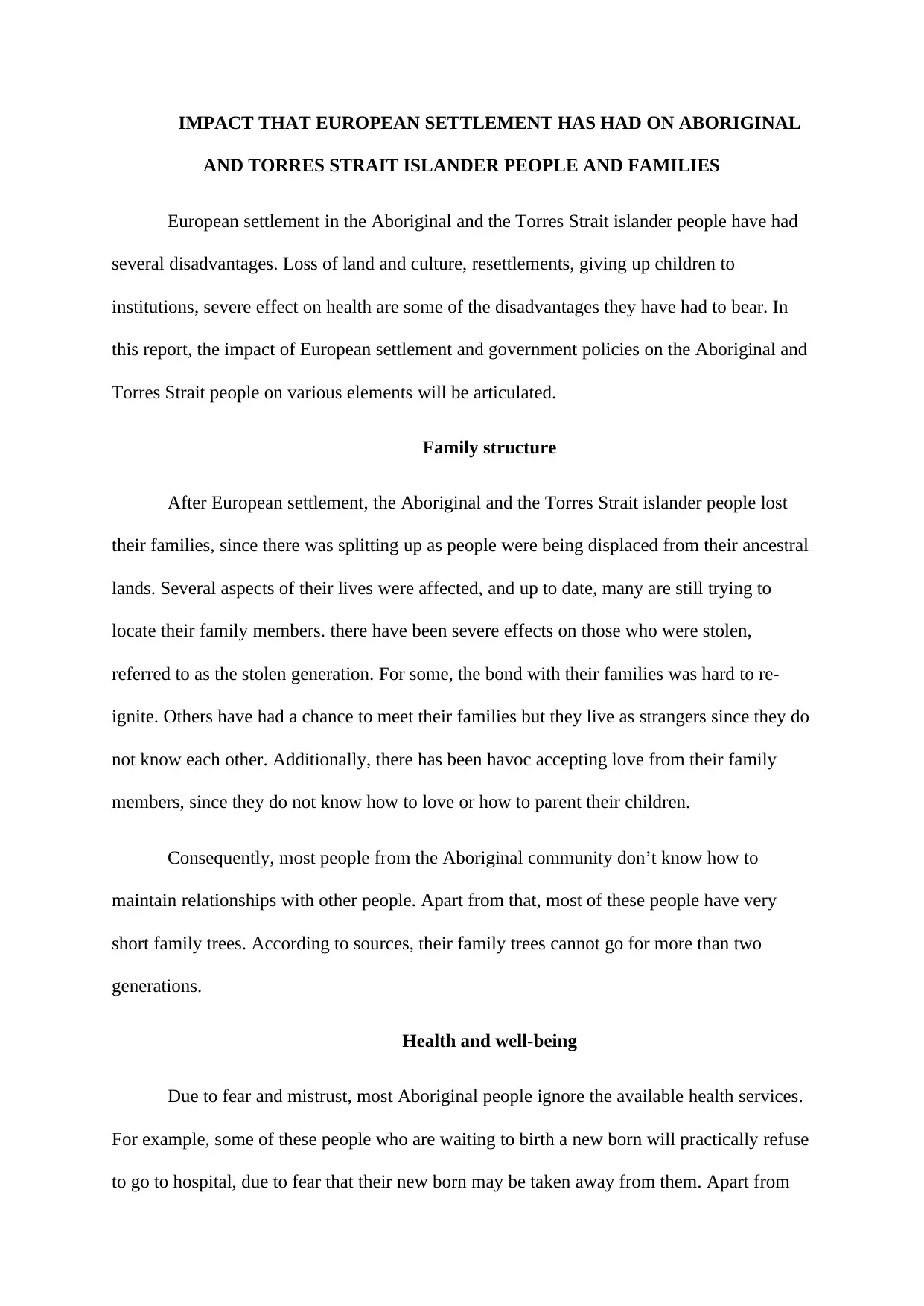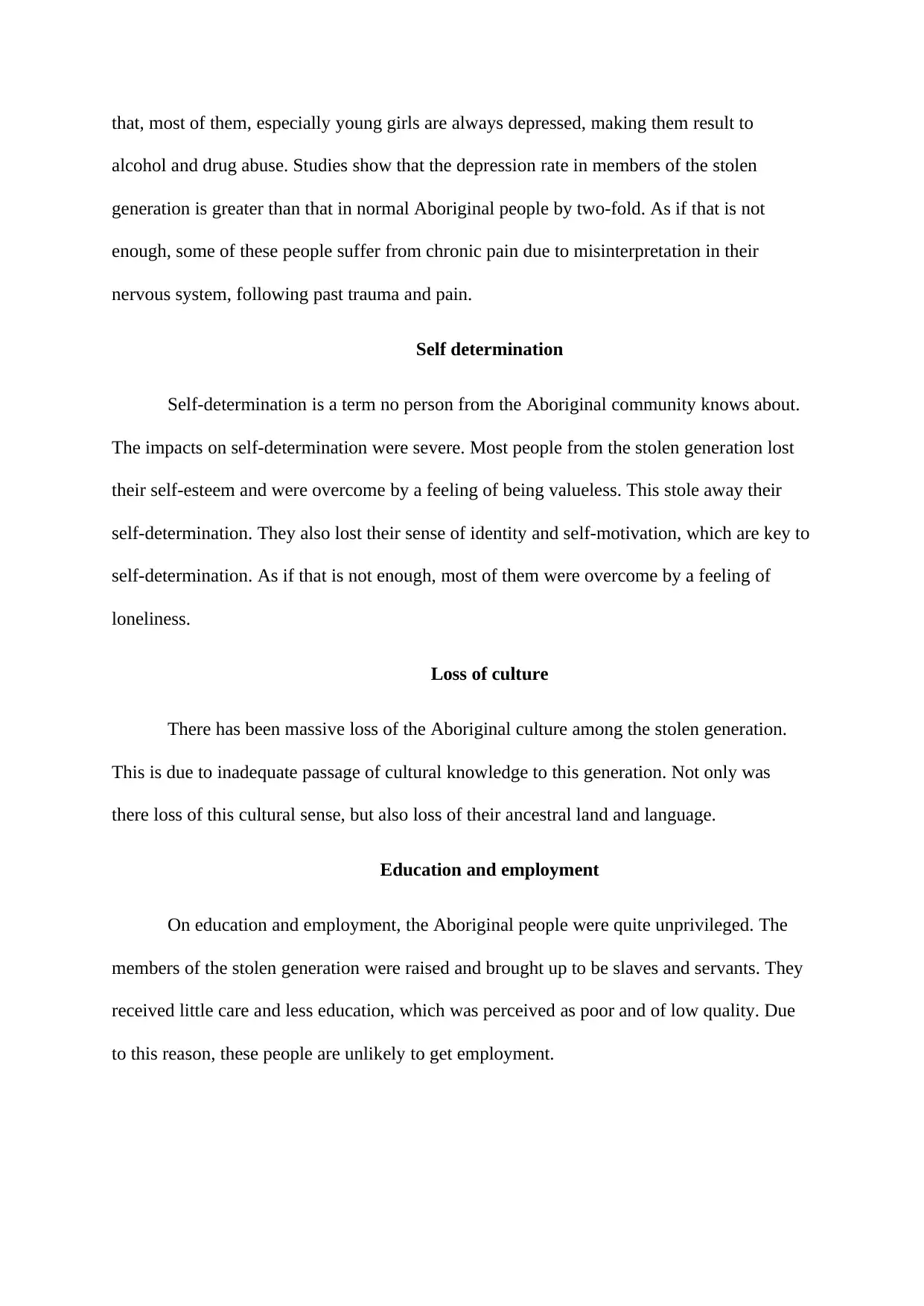European Settlement Impact on Aboriginal and Islander Families
VerifiedAdded on 2022/10/04
|2
|598
|88
Report
AI Summary
This report analyzes the profound and multifaceted impact of European settlement and subsequent government policies on Aboriginal and Torres Strait Islander people and families. It delves into the devastating effects on family structures, including the long-term consequences of the Stolen Generation, examining the disruption of kinship, the loss of ancestral lands, and the challenges faced by those separated from their families. The report further explores the impacts on health and well-being, highlighting issues such as mistrust of healthcare systems, increased rates of depression, and chronic pain. The erosion of self-determination, the loss of cultural identity, language, and land, and the disparities in education and employment opportunities are also investigated. The report underscores the historical injustices and lasting legacies of these policies, offering a comprehensive overview of the challenges and impacts on Aboriginal and Torres Strait Islander communities.
1 out of 2








![[object Object]](/_next/static/media/star-bottom.7253800d.svg)